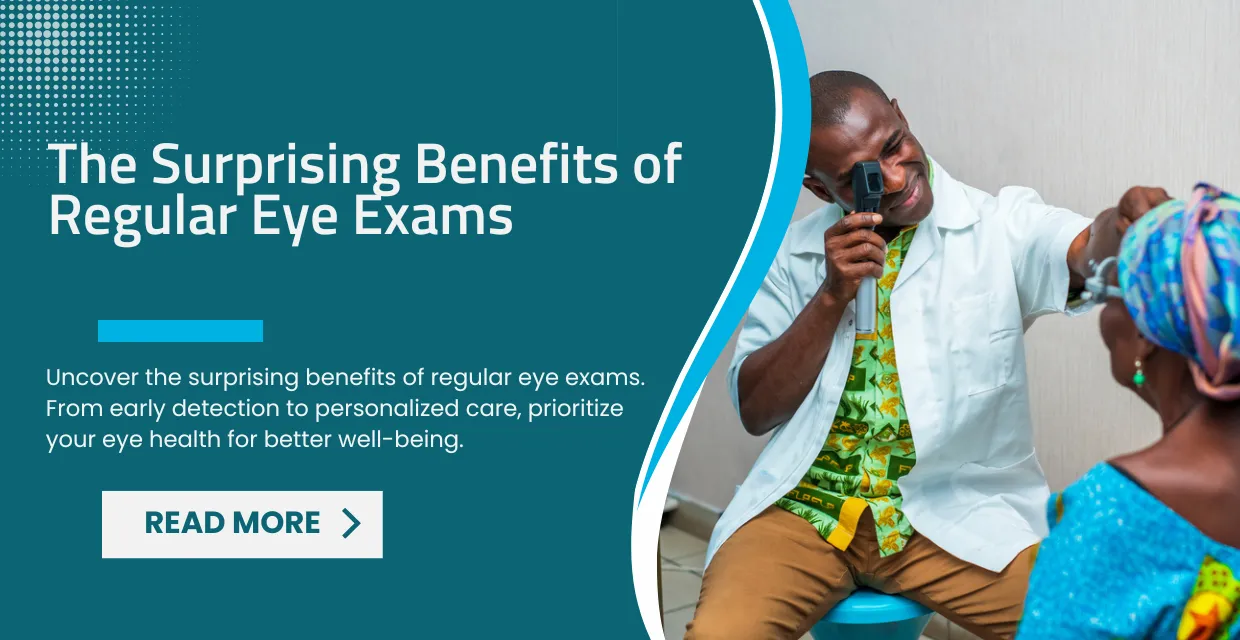Can You Really See a Difference After Cataract Surgery?
Have you ever wondered what life would be like without a clear vision? For those with cataracts, the cloudiness in their eyes can make even the simplest tasks, ...

When it comes to healthcare, many individuals often overlook the importance of regular eye exams. Eye health is a vital aspect of overall well-being, and routine eye exams should be a priority for everyone. Prioritizing eye health through regular check-ups can significantly impact your overall quality of life.
Regular eye exams, also known as comprehensive eye examinations, involve a series of tests and evaluations conducted by optometrists or ophthalmologists to assess the overall health of your eyes. These exams go beyond just checking for vision correction; they help in the early detection of potential eye diseases, ensuring timely intervention and treatment.
The recommended frequency of eye exams varies depending on age, medical history, and existing eye conditions. Generally, individuals without any vision problems should have their eyes checked every two years. However, for children and adults over 60, more frequent exams may be necessary. For those with pre-existing eye conditions or other health issues, annual exams are often advised.
Regular eye exams can lead to the early detection of eye conditions such as glaucoma, cataracts, macular degeneration, and diabetic retinopathy. Early detection is crucial, as it allows for timely treatment, preventing these conditions from worsening and preserving vision.
For those who require vision correction, regular eye exams ensure that prescriptions are up-to-date. Wearing the right glasses or contact lenses improves clarity and reduces eye strain, leading to better overall visual comfort.
The eyes can provide essential clues about a person's overall health. During an eye exam, eye care professionals may spot signs of systemic diseases like diabetes, hypertension, or high cholesterol. Early identification of these health issues can prompt individuals to seek medical attention and prevent complications.
In the digital age, many people spend extended periods staring at screens, leading to digital eye strain. Regular eye exams can address this issue and provide tips on reducing eye strain while using electronic devices.
For children, regular eye exams are crucial to detect vision problems early on, as these issues can impact their learning and development. Identifying and correcting vision problems in children can improve their academic performance and overall well-being.

Each individual's eye health is unique, and regular eye exams allow for personalized eye care based on specific needs. Eye care professionals can recommend specialized treatments or interventions as necessary.
For individuals with chronic eye conditions, regular eye exams are essential for monitoring their condition's progress and adjusting treatment plans accordingly.
Regular eye exams are not just about updating prescriptions; they play a vital role in safeguarding your eye health and overall well-being. By detecting eye conditions early, identifying underlying health issues, and providing personalized care, these exams contribute significantly to maintaining good vision and preventing potential problems. Make it a priority to schedule regular eye exams at LifeCare Hospitals or any reputable medical facility to ensure your eyes receive the attention they deserve.
The recommended frequency of eye exams varies based on age and existing eye conditions. Generally, individuals without vision problems should have their eyes checked every two years.
Yes, eye exams can provide essential clues about your overall health. Eye care professionals may spot signs of systemic diseases like diabetes, hypertension, or high cholesterol during an exam.
Yes, children's eye exams are crucial for early detection and correction of vision problems that may impact their learning and development.
Eye care professionals can provide tips and advice on reducing digital eye strain caused by prolonged screen use.
Early detection of eye conditions allows for timely treatment, preventing the conditions from worsening and preserving vision.
Partager cet article